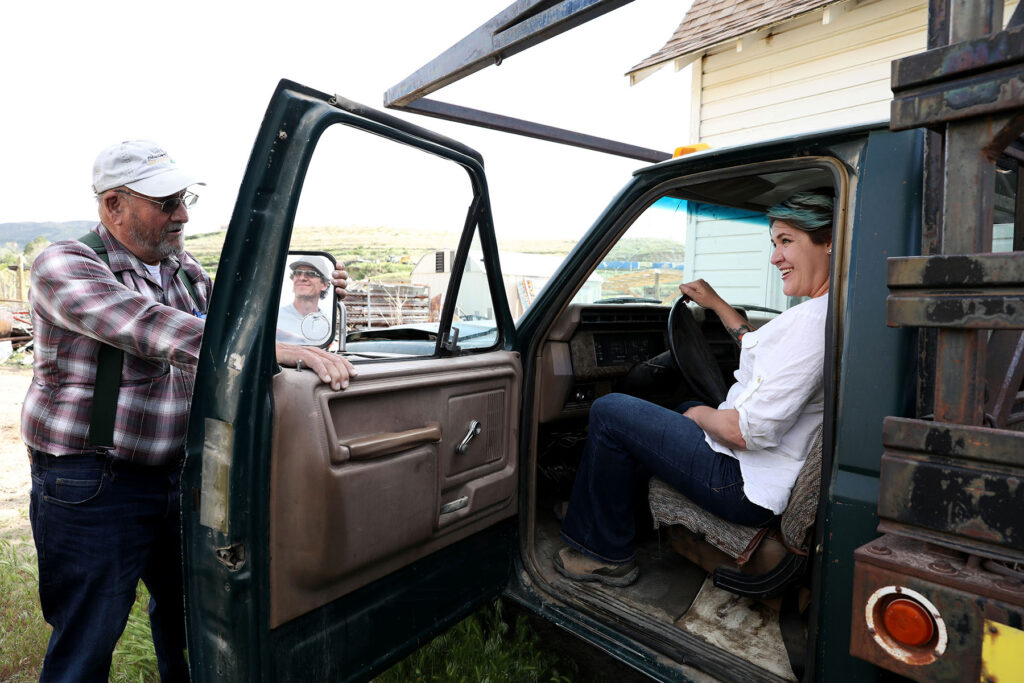
HOMEGROWN
With online degree programs, rural Colorado students bloom where they’re planted
By Betsy Piland | Photography by Vance Jacobs
July 17, 2023
Last spring, Christina Horn hopped off a utility vehicle in her family’s fruit orchard and walked to a blossom-covered cherry tree. The orchard, which was filled with blooms, sits near a towering mesa called Mount Garfield, offering a breathtaking scene. Horn plucked a flower off the tree and pinched it open to check for fruit formation.
“Nope. The frost got these,” she said, sighing with disappointment. Turning to a nearby peach tree, she examined another blossom and pointed to a tiny orb, which would develop into fruit this summer. “This is what it’s supposed to look like,” she explained.
Horn has lived most of her life here in Palisade, Colorado, on the Western Slope. She spent her childhood running through rows of fruit trees and helping her family care for the land they have owned since 1978.
The town is quintessentially Colorado. Train tracks and abandoned mining shacks dot the landscape, where the Rocky Mountains merge into the imposing Grand Mesa.

Horn is a culinary arts teacher at the Career Center in the Grand Junction, Colorado, school district. She earned a master’s degree in teaching and learning from CSU Global; her fully online course work allowed Horn to stay in her home community and continue working while completing her degree.
Drive down Palisade’s main thoroughfare, and it’s easy to see how the town gained a reputation for juicy, flavorful produce – especially peaches. Dozens of fruit orchards are situated on the banks of the Colorado River. Some are sprawling, covering more than 100 acres. Others are small, like Harry’s Peaches, Horn’s family’s operation. Named for her father, Harry Jackson, the orchard covers four acres of peach, nectarine, and cherry trees, as well as 12 acres of grapevines.
For now, Jackson runs the orchard with help from Horn and her husband, Matt. Yet, the family is preparing for a future when the Horns will take over and fully manage the orchard.
Until then, Christina Horn is growing her career by extending what she has learned about raising food into work as a culinary arts teacher in the Grand Junction school district. Last month, Horn completed an online master’s degree in teaching and learning from CSU Global, reflecting newly gained expertise that she puts to use as an instructor in the local school district’s Career Center. With her degree and teaching license, she teaches students not only how to prepare food, but also about where it comes from – often working closely with the district’s horticulture program and taking students on field trips to her family’s orchard and other farms.
“It’s really great to introduce students to all the things we grow,” she said. “We’re as farm-to-table as we can get.”
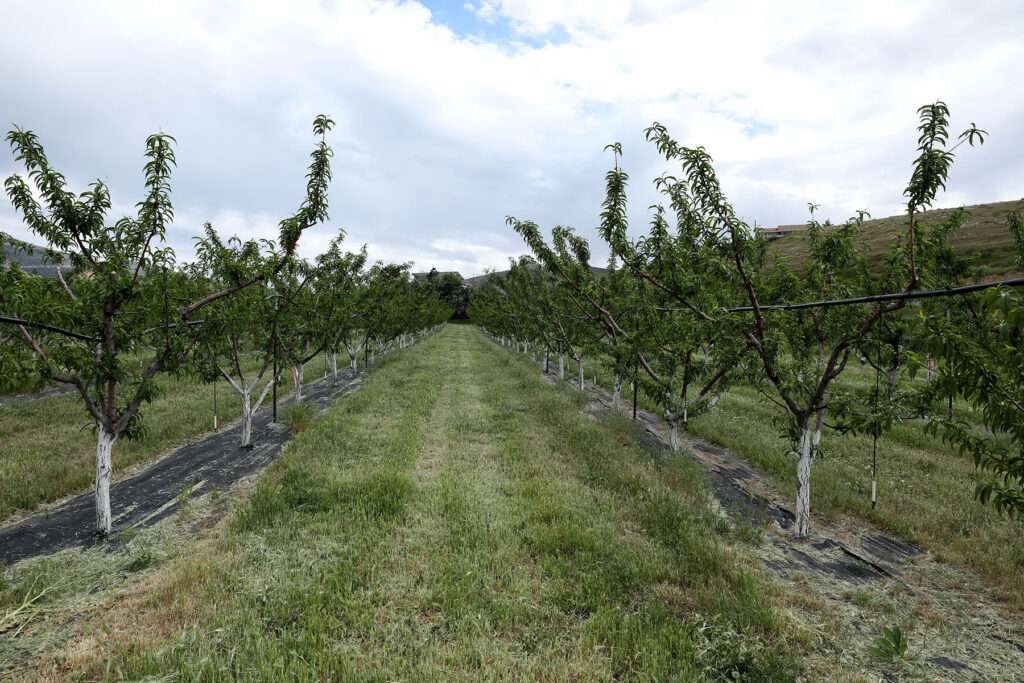

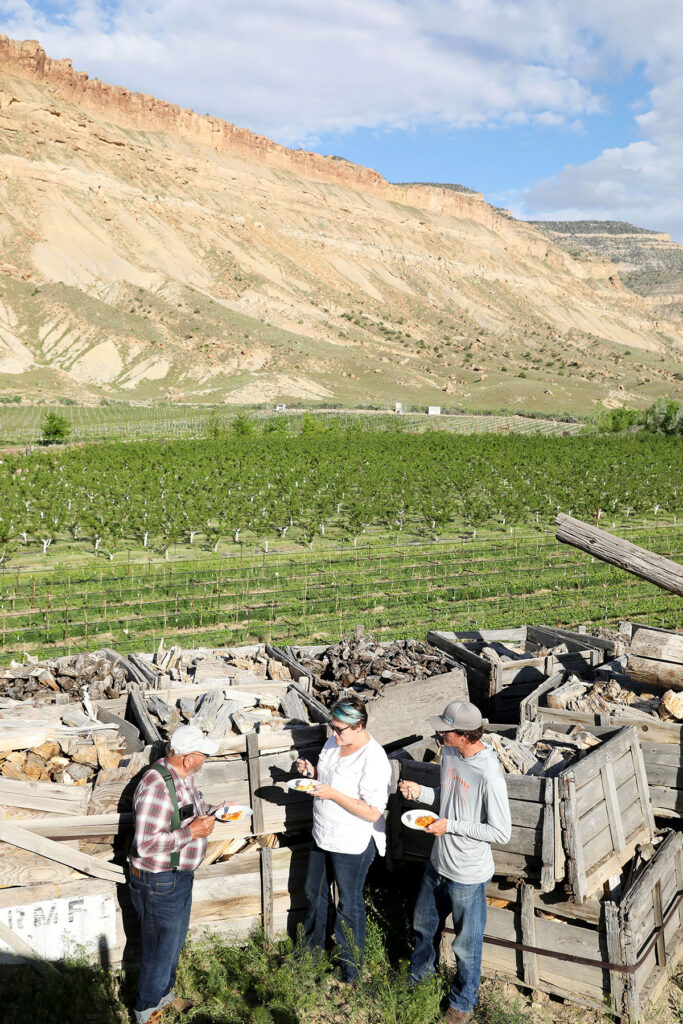
Left: Harry’s Peaches is one of many orchards in Palisade, at the foot of Grand Mesa on the Western Slope. Right: Horn, her father, and husband enjoy peach cobbler in the family’s orchard.
Top: Harry’s Peaches is one of many orchards in Palisade, at the foot of Grand Mesa on the Western Slope. Bottom: Horn, her father, and husband enjoy peach cobbler in the family’s orchard.
As a recent graduate living in rural Colorado, Horn represents an important constituency for CSU Global. In 2021-2022, students living in rural communities made up 25 percent of total Colorado enrollment in the online university, records show. Others live in the urban Front Range corridor, across the nation, and around the world. Delivering higher education to rural Colorado fulfills individual needs for hundreds of students, slows some urban migration, and supports economic development that much of rural Colorado urgently seeks.
Like Horn, most CSU Global students juggle work, family, and other responsibilities while completing university course work. CSU Global’s fully online, accredited degree programs make college accessible for working adults and those for whom a traditional college campus is not the right fit. Notably, students in rural Colorado attend CSU Global to attain credentials that allow them to realize personal and professional goals – while staying put and contributing enhanced knowledge, skills, and earnings in their outlying communities.

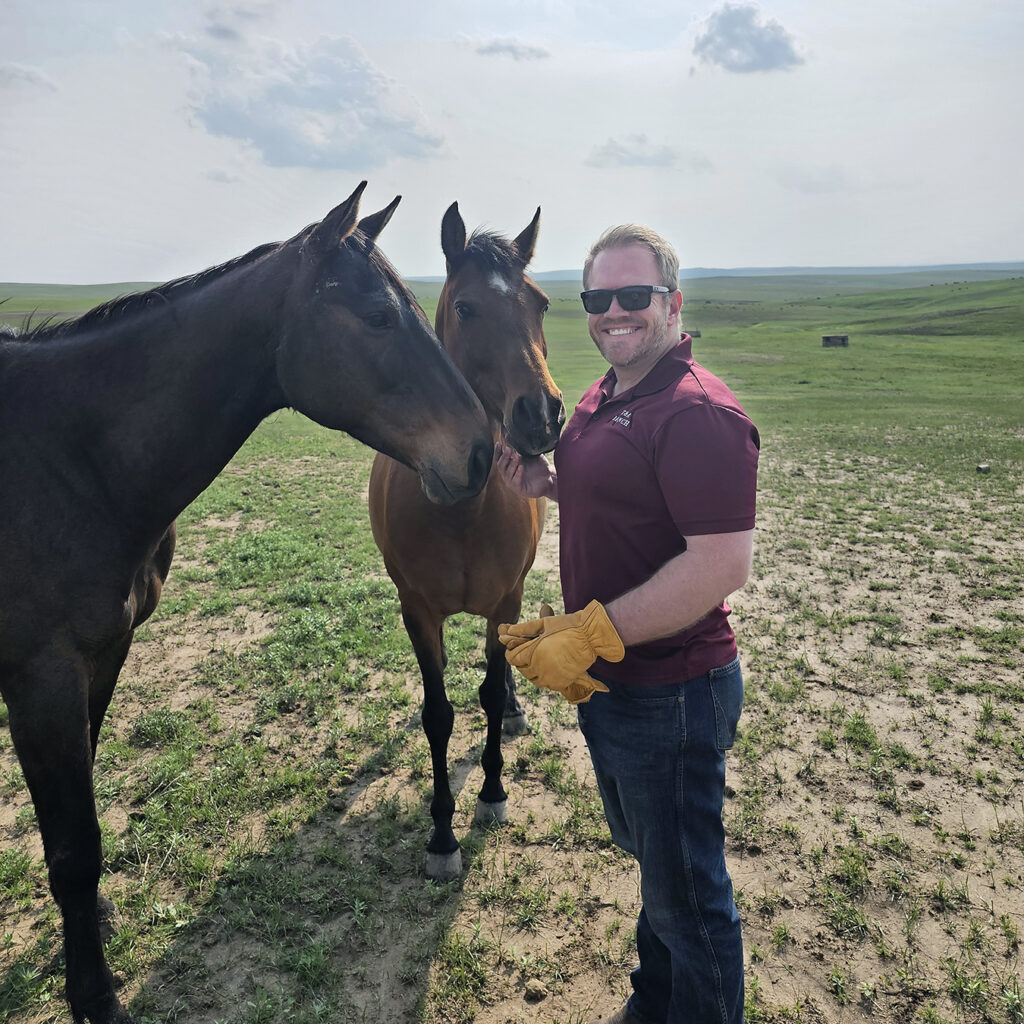
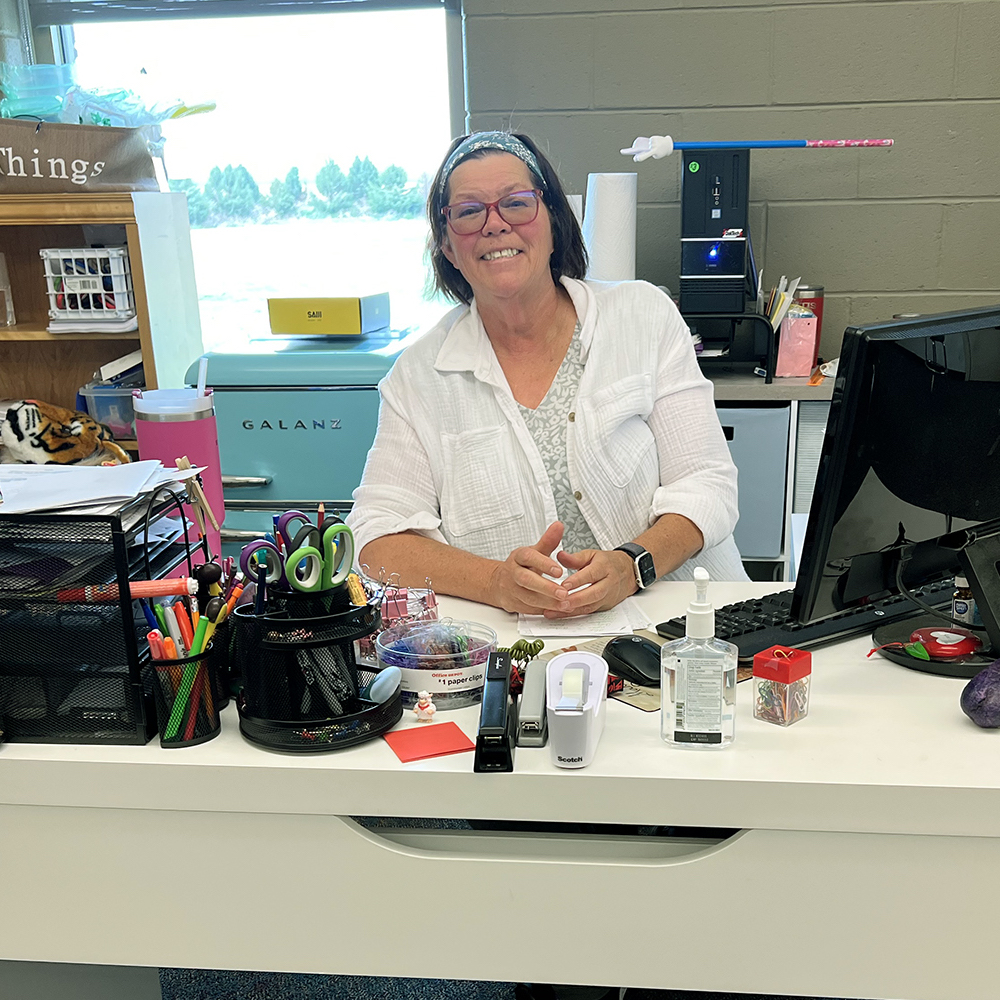
From left: Zeke Kyoku, Trevor Wells, and Margaret Chouinard have been able to stay put in their rural Colorado communities by pursuing online degrees through CSU Global. Photography: Submitted.
From top: Zeke Kyoku, Trevor Wells, and Margaret Chouinard have been able to stay put in their rural Colorado communities by pursuing online degrees through CSU Global. Photography: Submitted.
For instance, Margaret Chouinard has worked for 12 years as a middle school teacher in the tiny Eastern Plains town of Otis, in the northeast corner of Colorado. In 2021, she earned a master’s degree in teaching and learning from CSU Global after hoping for some time to pursue an advanced degree.
Chouinard had put off graduate work given the time required for studies, the distance to a university campus, and the cost. Then, she learned about CSU Global from the Northeast Colorado Board of Cooperative Educational Services, which provided Chouinard with a full scholarship to earn her master’s degree online; simultaneously, she completed an online math program. With her new credentials, Chouinard has expanded her teaching career to include math instruction at Morgan Community College. Attending CSU Global while working as a teacher allowed her to remain in her Colorado community, Chouinard said.
Zeke Kyoku has a similar story. He works as a diesel technician and mechanic in rural Lamar, in southeastern Colorado, and is pursuing a bachelor’s degree in cybersecurity through CSU Global. Kyoku said he is excited to develop a rewarding career that can be done remotely, so he can continue living in Lamar; he hopes his education and anticipated income growth allow him to own a farm and to employ others in his community.
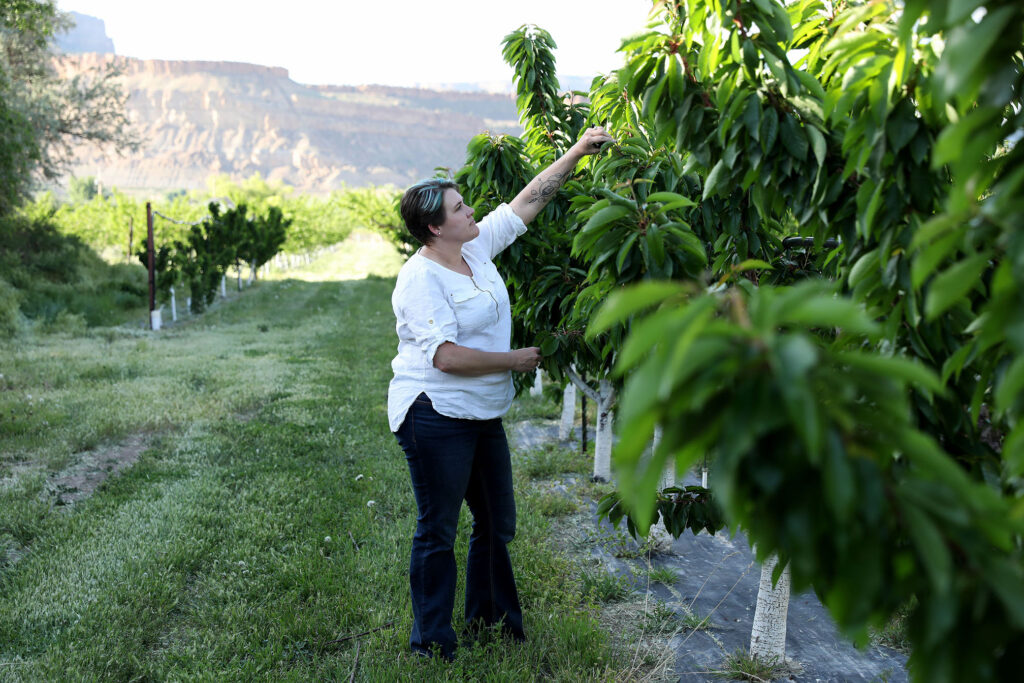
Horn checks fruit trees at the start of the growing season.
Also committed to his rural Colorado community, Trevor Wells owns an 86-acre ranch in Peyton, northeast of Colorado Springs. Here, he and his wife care for rescue horses, dogs, and cats. The Navy veteran commutes three hours a day to his job as a systems engineer at Buckley Space Force Base in Aurora. On top of all these responsibilities, he is completing his bachelor’s degree in management information systems and business analytics through CSU Global.
His schedule made online degree attainment a necessity, Wells said. While he chose CSU Global for its high-quality curriculum, he has appreciated the academic and personal support he has received during his studies.
“I am not just a student here; I am a person,” Wells said. “From my adviser who has been with me from the beginning to the instructors – they understand people with busy lives are attending their institution. Like me, while people are pursuing their education, they might also have to care about ranch fence repairs after a 12-hour workday or help a mare as she gives birth late at night.”
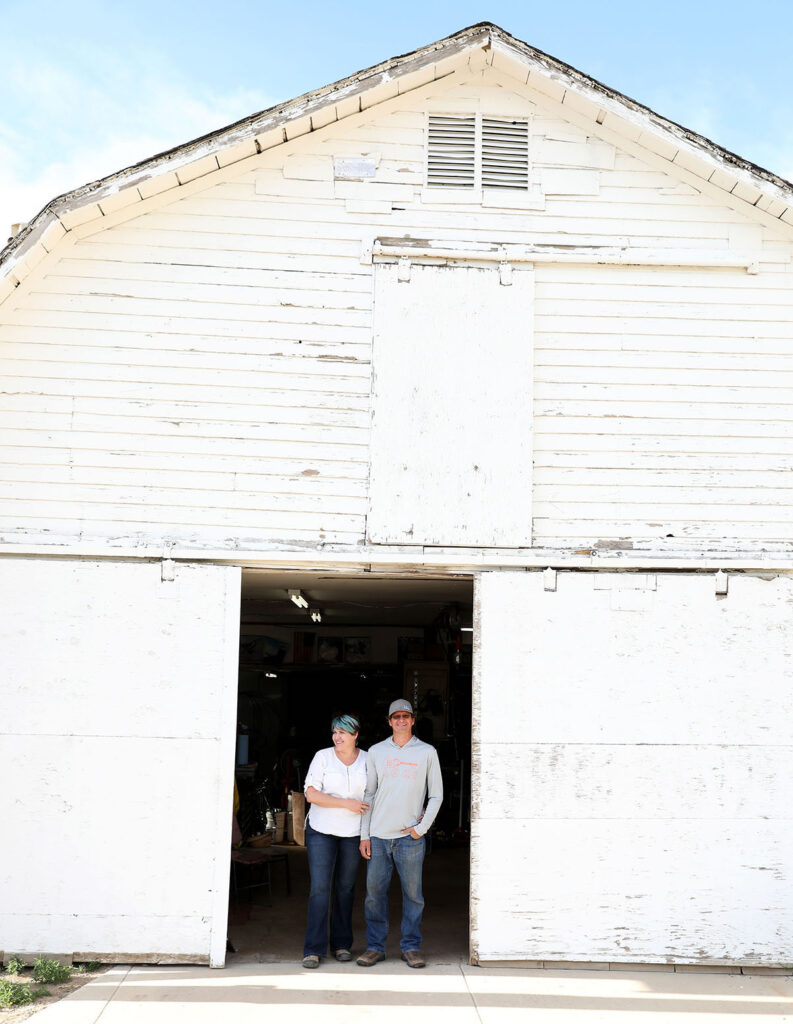
Christina Horn and her husband, Matt.
Horn’s path to teaching began after she earned a bachelor’s degree in liberal arts from Colorado State University in Fort Collins. She pursued her love of cooking at the Auguste Escoffier School of Culinary Arts in Boulder. After several years working in restaurants and earning a chef de cuisine position, she was ready for a change.
She heard about the culinary arts program in the local school district’s Career Center and realized it could be a way to share her love of cooking while teaching young people valuable life skills, which they might use in their own careers.
She started as a culinary arts instructor in Grand Junction in 2017. Aspects of the job came naturally. Yet, while she had classical training as a chef, Horn did not have formal education to be a teacher. Weighing her options for a master’s degree, she recalled her experience commuting to culinary school. “Spending hours a week driving to and from a college campus wasn’t something I cared to repeat, and once I was teaching full time it wasn’t even an option. I needed an online program,” Horn said.
CSU Global was a good fit, not only because it eliminated a commute but also because she qualified for a tuition discount as an alumnus of Colorado State. In addition, each CSU Global degree program offers a specialization – a way for students to tailor their studies to a specific career path. Horn specialized in change management and strategic innovation because the courses reflect values her dad instilled in her from a young age.
Horn said she immediately put her learning to use. “You can see where I got that sense of innovation,” Horn said, gesturing toward her father during an orchard tour. “He was always encouraging me to think differently, to try new things.”
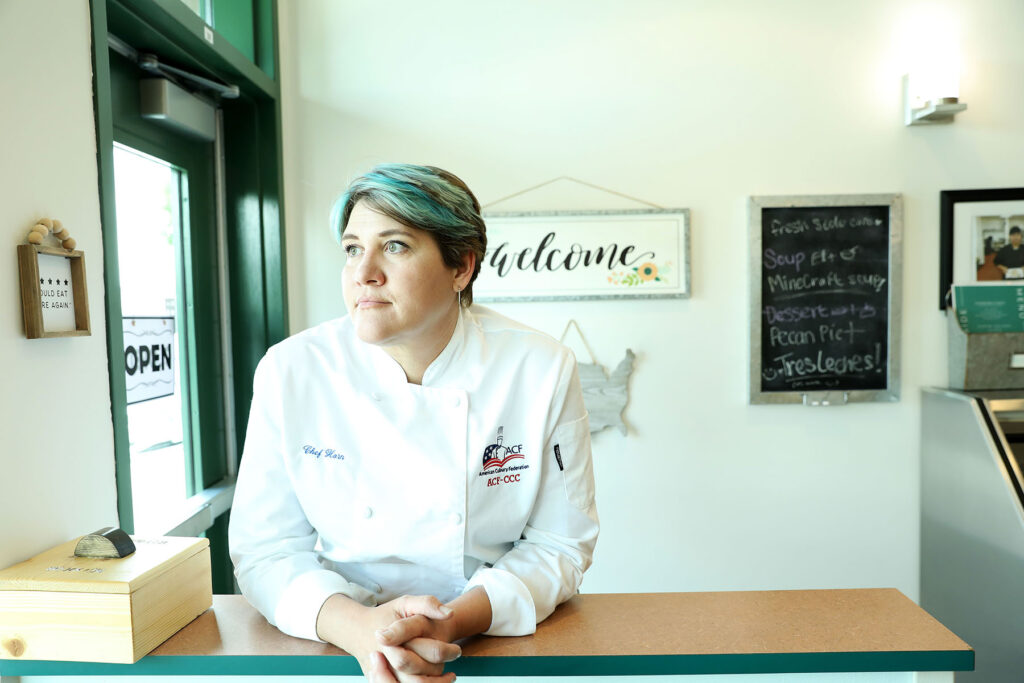
Horn often teaches her high school students in Grand Junction not only how to prepare food, but also where it comes from. It’s important to share information about food and agriculture with her students, she says.
After graduating from CSU, Horn lived for a time on the Front Range, and she and Jackson developed a way to supplement sales for Harry’s Peaches: The father and daughter would meet at a halfway point; Jackson would hand off a truck full of fruit, and Horn would hand over an empty truck. After they swapped vehicles, Horn would drive to downtown Denver to sell the Palisade-grown fruit. She always sold out.
These days, in addition to culinary teaching, Horn works in the orchard and handles business needs for Harry’s Peaches. She connects with farmers markets across the state, works with local wineries, and secured a U.S. Department of Agriculture grant that allows the orchard to fully operate with solar power.
Jackson is in his 80s but shows no sign of slowing down. He navigated a utility terrain vehicle past rows of fruit trees and grapevines, pointing to rabbits as they nibbled lush cover crops of alfalfa, red clover, hairy vetch, and trefoil. The crops help retain moisture and control weeds. He noted bat boxes installed around the orchard’s perimeter, which invite the insect-eating animals to assist with pest control. Jackson could teach master classes on tree pruning for best yields, filtration systems that keep irrigation water flowing freely, and fencing to ward off hungry deer.
Horn smiled as she listened to her father describe the orchard layout. At that moment, she was not a teacher, but it was evident who inspired her to become one.
Photo at top: Christina Horn of Palisade, Colorado, works at her family’s orchard, Harry’s Peaches, with her father, Harry Jackson, and husband, Matt Horn.
SHARE
